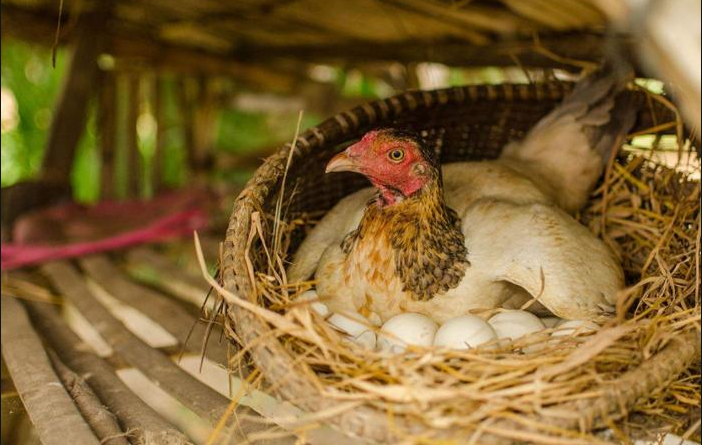Chicken egg-laying syndrome is an infectious disease caused by avian adenovirus and characterized by a decline in egg production rate, which can cause a sudden decline in egg production rate, an increase in soft-shelled and deformed eggs, and a lightening of the color of brown eggshells.
Chickens, ducks, geese and mallards are susceptible to the disease, and the susceptibility of different breeds of chickens to egg-laying syndrome varies, with brown-shelled laying hens being the most susceptible. The disease mainly infects chickens between 26 and 32 weeks of age, and is less common above 35 weeks of age. Young chickens do not show symptoms after infection, and no antibody is detected in the serum, which becomes positive after the start of egg production. The source of virus transmission is mainly diseased chickens and virus-carrying chickens, vertically infected chicks, and contact with feces and secretions of diseased chickens will also be infected. Infected chickens have no obvious clinical symptoms, 26 to 32 weeks old laying hens egg production rate suddenly dropped 20% to 30%, or even 50%, and thin-shelled eggs, soft-shelled eggs, eggs without shell, small eggs, eggshell surface rough or egg end was fine granular (sandpaper-like), egg yellow light, egg white thin as water, sometimes egg white mixed with blood or foreign matter. The fertilization rate and hatching rate of eggs laid by sick chickens are generally unaffected, and the number of weak chicks may increase. The course of the disease can last 4 to 10 weeks, after which the egg production rate of the flock can gradually return to normal. Some of the sick chickens may also show symptoms such as lack of spirit, white crown, disheveled feathers, loss of appetite and dysentery.
Keeping in mind the introduction of breeders from non-infected areas, the introduced breeder flocks should be strictly isolated and kept in quarantine, and the hemagglutination inhibition test (HI test) should be used after laying eggs, and only those who are HI negative can be retained for breeding. Chicken farms and hatching halls strictly implement disinfection procedures, pay attention to maintain the balance of amino acids and vitamins in the diet. For 110 ~ 130 days old chickens should be immunized with oil adjuvant inactivated vaccine.
Post time: Sep-28-2023





